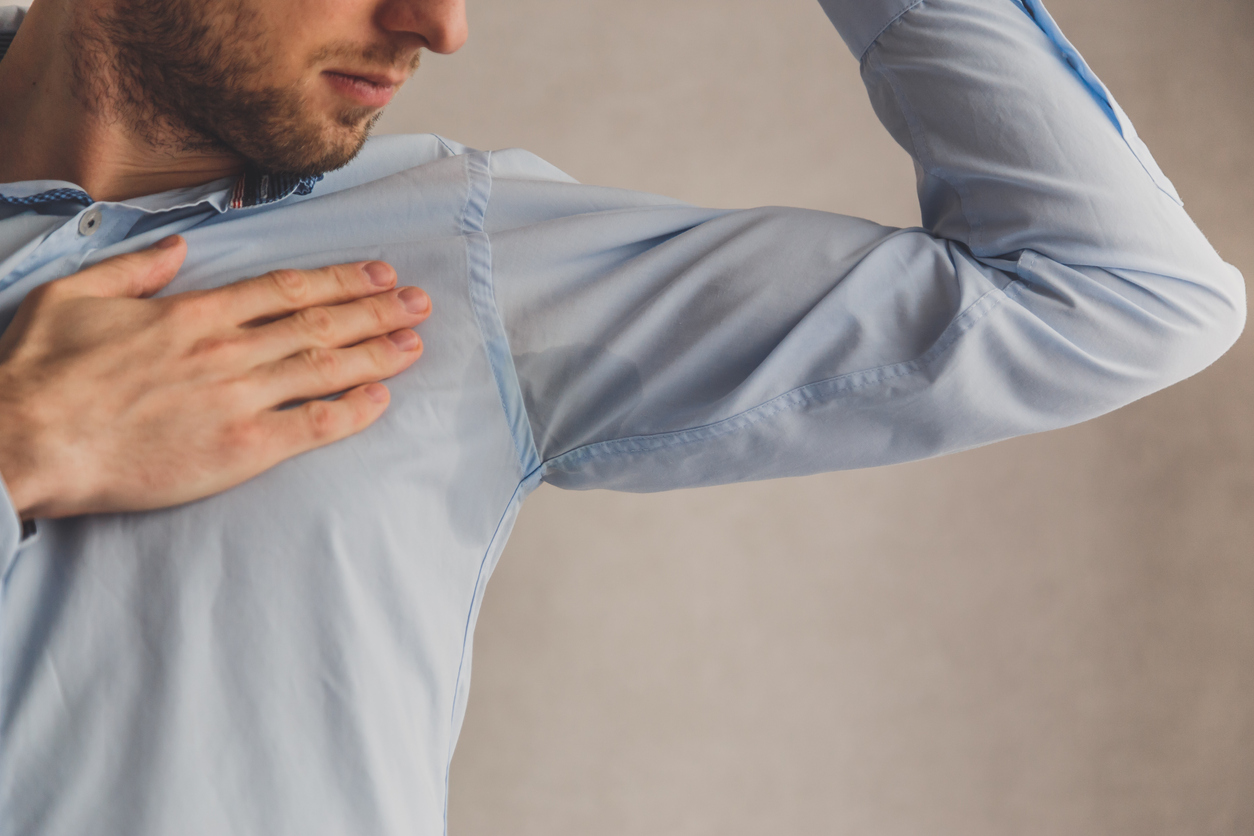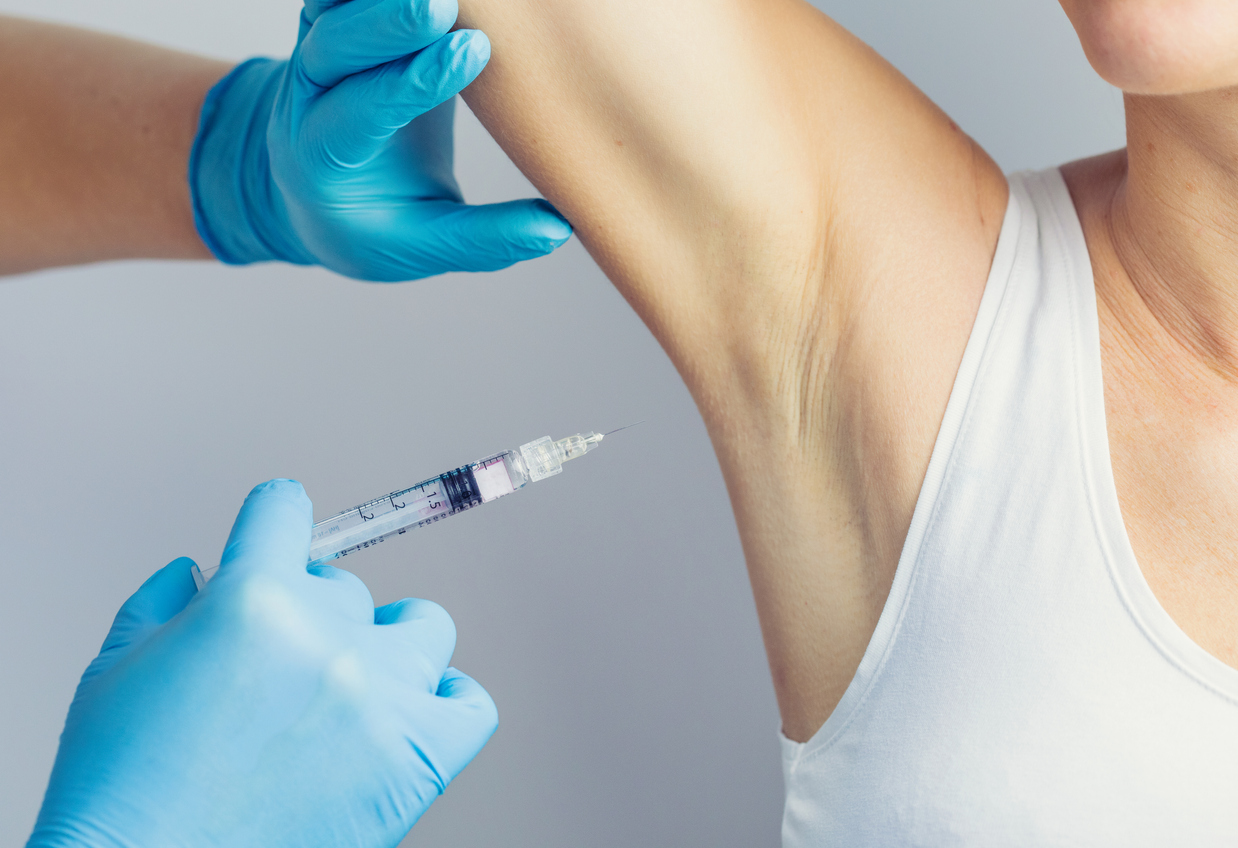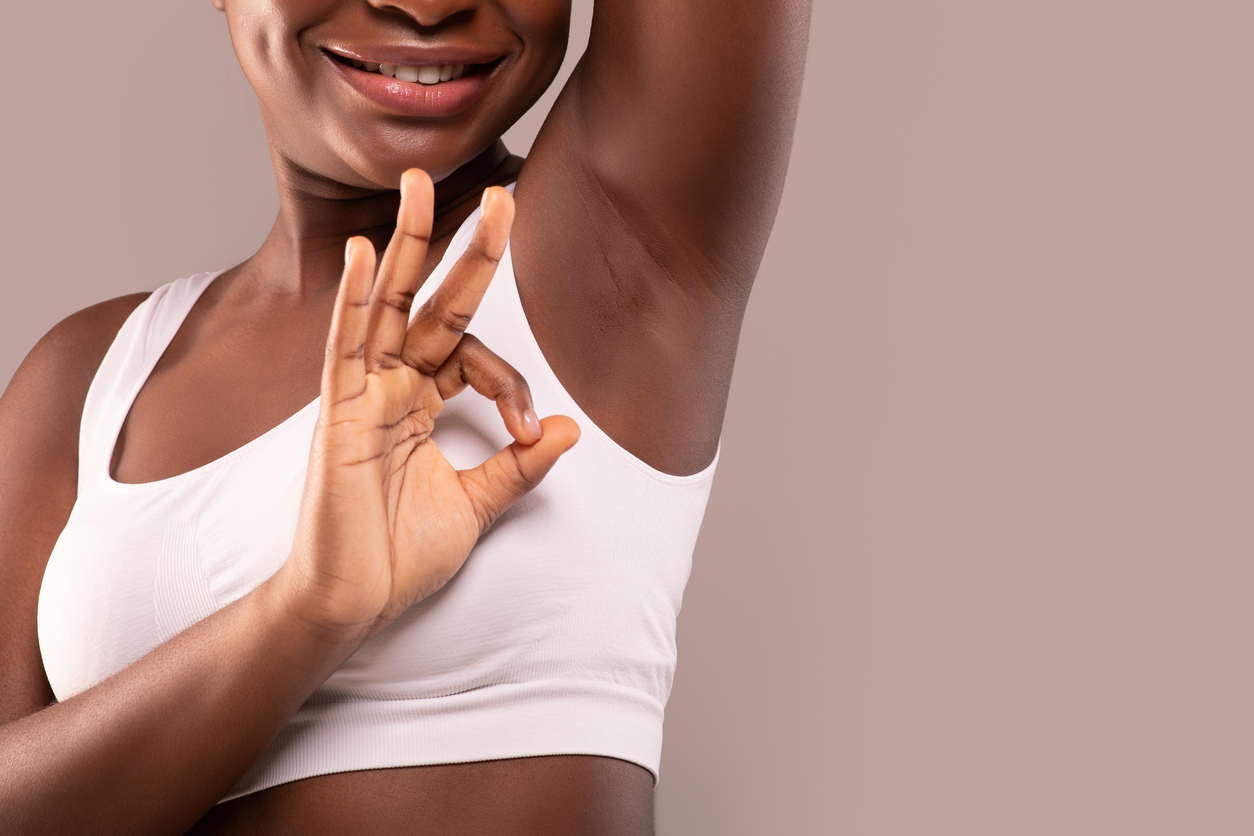Hyperhidrosis
in Lynchburg, VA
Hyperhidrosis
in Lynchburg, VA

What is Hyperhydrosis?
Hyperhidrosis is a medical condition that causes excessive sweating. Sweating is the body’s natural way of cooling itself; so you need to sweat when your body temperature is raised to prevent you from overheating. In hyperhidrosis, the nerves responsible for triggering sweat glands become overactive and signal for more perspiration even when it is not needed. Stress or nervousness makes the problem worse. In some cases, sweat can be so excessive that it soaks through clothing and drips off hands. Hyperhidrosis can cause social anxiety and embarrassment.
When the sweating is attributed to an underlying medical condition, it is called secondary hyperhidrosis. This type is more likely to cause excessive sweating all over the body.
Symptoms of Hyperhydrosis
People with the medical condition of hyperhidrosis sweat when the body does not need cooling. Excessive sweating in people with hyperhidrosis usually occurs in the following locations:
- Palms of hands
- Feet
- Underarms
- Head
This excessive amount of sweating can interfere with daily activities, making it difficult to open doorknobs or hold a pen. Sweating in the armpit region can become so profuse that it is recognizable by others, causing embarrassment and anxiety. The constant moisture on the skin can lead to skin infections, so it is recommended that you see a dermatologist to determine whether you have hyperhidrosis.


What causes Hyperhydrosis?
Primary hyperhidrosis has no known cause. However, other conditions that may cause hyperhidrosis are underlying health factors including:
- Medications
- Diabetes
- Menopause hot flashes
- Low blood sugar
- Overactive thyroid gland
- Some types of cancer
- Nervous system disorders
- Infectious disease
Dermatologists estimate that 3% of people in the United States have excessive sweating. Some people are more likely to have hyperhidrosis if:
- A family member sweats excessively.
- A medical condition is present that causes excessive sweating, such as diabetes, gout or some tumors can cause hyperhidrosis.
- Vitamin or food supplements are being taken, which can cause excessive sweating.
It is normal for women approaching menopause to sweat excessively at night or during hot flashes, due to a drop in hormone levels.
How Dermatologists Treat Hyperhidrosis
As with all conditions or diseases of the skin, an accurate diagnosis from a dermatologist is the first step to get you on the path to healing. Your doctor will collect your medical history, perform an examination and rule out alternative medical conditions that may be causing excessive sweating.
Treatment options for hyperhidrosis include:
- Dermatologist-recommended antiperspirants and possibly prescription antiperspirants. The antiperspirants stay on top of your skin; and as you sweat, the antiperspirant is pulled into your sweat glands and plugs them, signaling your body to stop producing excessive sweat. These topical treatments can be applied to underarms, hands, feet and hairline.
- Iontophoresis – a medical device used on the hands and feet to treat excessive sweating by applying a low-voltage current to a shallow water bath. The electric current temporarily shuts down the sweat glands in the hands and feet.
- Botulinum toxin injections – to treat excessive sweating in the armpit areas, your doctor can inject a small, weakened form of botulinum toxin into many areas within the armpit to temporarily block a chemical in the body that stimulates sweat glands.
- Prescription medication can be given to prevent sweating throughout the entire body temporarily, but should be used with caution as the body may not be able to cool itself.
Your doctor will work with you to determine the best treatment plan to reduce excessive sweating. In general, the most minimally invasive treatments will be applied first to achieve the results you desire with the least amount of side effects.

